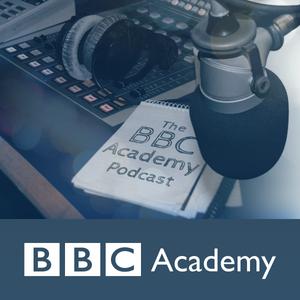
The BBC Academy Podcast
BBC
Essential listening for the broadcast production, journalism and technology communities. Your guide to everything from editorial and craft skills to taking your next step in the industry. Practical advice on all aspects of TV, radio, journalism.
- 19 minutes 21 secondsMinipods – Smartphone journalism episode five: Audio
Everything from mics and cables to acoustics and technique, BBC Academy Trainer, Marc Settle, shares advice on how to get that perfect recording every time.
Dur: 18’40”
Presented by Marc Settle. Produced by Sam Upton.
26 July 2024, 11:34 am - 15 minutes 18 secondsMinipods – Smartphone journalism episode four: Video part 2
Lighting, stability and zooming are the focus for BBC Academy trainer, Marc Settle. There’s more to filming great video than just pointing and shooting.
Dur: 14’19”
Presented by Marc Settle. Produced by Sam Upton.
26 July 2024, 11:20 am - 20 minutes 33 secondsMinipods – Smartphone journalism episode three: Video part 1
From frame rate, file size and aspect ratio to audio and accessories, before you start the camera rolling, make sure you’re properly prepared. BBC Academy trainer, Marc Settle, considers the set-up you need.
Dur: 19’33”
Presented by Marc Settle. Produced by Sam Upton.
26 July 2024, 11:13 am - 23 minutes 2 secondsMinipods – Smartphone journalism episode two: Photos
Covering focus, exposure, composition and much more, BBC Academy expert Marc Settle shares his tips and tricks for the perfect picture.
Dur: 22’12”
Presented by Marc Settle. Produced by Sam Upton.
26 July 2024, 11:00 am - 17 minutes 36 secondsMinipods – Smartphone journalism episode one: Settings
From battery, storage and connectivity to accessories and apps, be sure to get the most out of your smartphone by setting it up properly. BBC Academy trainer, Marc Settle shows you how.
Dur 17’37”
Presented by Marc Settle. Produced by Sam Upton.
26 July 2024, 10:29 am - 33 minutes 20 secondsPodcastology episode fifteen: Is video the new audio?
As large percentages of younger audiences come to podcasts via YouTube, we ask, is video the new audio?
The line between video and podcasts has become blurry in recent years. It's getting harder to say that a podcast is an ‘audio only’ thing. People have been uploading video recordings of their podcasts for years. But what is a ‘video podcast’ - and how do you make a great one? And what about the purists who say, if you don’t have an RSS feed - it’s not a podcast?
To help us answer this puzzle, we speak to Alison Lomax, Managing Director, YouTube UK & Ireland and the BBC’s Head of Visualisation, Joe Harland.
You can view the visualisation edition of this episode at https://www.youtube.com/watch?v=qUexDfHP2DI
30 January 2024, 3:50 pm - 32 minutes 15 secondsPodcastology episode sixteen: New formats, new voices
In this episode of Podcastology, we’ll discover some of the ground-breaking new formats pushing the boundaries of what podcasts can do. Often, these innovations come from voices and communities who don’t always get heard. We find out who they are, and how they are taking podcasts in exciting new directions.
We’re joined by Nicky Birch, who is the Editorial Executive for new formats in BBC Sounds, and Jesse Lawson, a multi award-winning freelance audio producer, sound designer and community facilitator who makes very innovative podcasts with a vast array of young people and previously unheard voices.
30 January 2024, 10:51 am - 35 minutes 1 secondPodcastology episode fourteen: How to win an award
What are the magic ingredients judges are looking for - and do they even exist?? Well, yes, according to awards judges. But how do you quantify them? And what do you need to think about if you are setting out to make an outstanding podcast?
We’re joined by people who know the answers to some of these questions: Tomi Dixon, who won ‘best new podcast’ at the Arias, for Colouring In Britain, and Talia Randall, who won silver at The British Podcast Awards in the Environment category, and the Sustainability Award at the 2023 Audio Production Awards, for Blossom Trees and Burnt out Cars. We’re also joined by Hannah Hufford - who is a podcast development producer at BBC Audio and was a judge at The British Podcast Awards.
30 January 2024, 10:18 am - 26 minutes 44 secondsPodcastology episode thirteen: Going local
This sounds like a contradiction - after all, you can listen to podcasts anywhere, and the most successful podcasts have a universal appeal. But, all stories come from somewhere, and as we discover, being rooted in a local patch can bring a real richness to your podcast. There is also a growing trend for podcasts which grow from a local community.
We speak to award-winning podcast makers who know what it means to tell local stories: Andy Whittaker, a Sony award-winning radio host and podcast presenter based in Nottinghamshire, and Zoe Chamberlain, producer and presenter of the Brummie Mummies podcast. We’re also joined by Chris Burns, who is Controller of Local Audio for BBC Local and in charge of the 39 Local Radio stations in England.
30 January 2024, 10:03 am - 27 minutes 24 secondsPodcastology episode twelve: Future directions
We’ll look at where the medium is now, and where we think it's headed. We consider the future of podcasting, and what's coming next. What does the growing Gen Z audience want? Can technology make listening a more personal, tailored experience? Will your next podcast be presented by a bot?
With some geeky language around ‘personalisation tools’ and the effect of artificial intelligence, we gaze into the future with Aniruddh Dimri, BBC Sound’s Head of Product, Cat Agostinho, Co-Director of Imagen Insights, who researches the Gen Z audience, and the Editor of Pod News, James Cridland.
30 January 2024, 9:22 am - 21 minutes 27 secondsVicarious trauma in journalism and the media
This podcast tackles sensitive and distressing subject matter, including discussion about extremist groups, suicide bombings, chemical attacks and trauma.
You don't have to directly visit a traumatic scene to be affected by it. Vicarious trauma affects those viewing or hearing disturbing material or hearing second-hand the testimonies of those directly affected by a traumatic incident.
In this podcast the BBC's Chief Medical Officer Dr Clare Fernandes speaks to journalist Abdirahim Saeed, who works for the BBC Monitoring Team which monitors and verifies social media to pull into the BBC's reporting.
You'll learn: • what vicarious trauma is • where it can affect colleagues in the BBC, including the types of roles and subject matter • how to safeguard your health, including limiting exposure to trauma and coping mechanisms • how to support and protect your colleagues • where to turn to for help
Abdirahim talks about what he's seen when covering extremist incidents, including ISIS and Al Qaida attacks and the war in Syria, how it's affected him and how he limits the effects of vicarious trauma on his mental health.
This episode is part of a series focussing on wellbeing and mental health. Further episodes can be found by searching for the BBC Academy podcast on BBC Sounds.
A transcript of this podcast is available on the episode's programme page.
Although aimed primarily at BBC staff, the advice is useful for all those working in journalism, current affairs or other parts of the media industry who may come into contact with victims of trauma or view upsetting material.
Help and support If you've been affected by what you've heard in this podcast, please search for support on the BBC Action Line website. You may also wish to contact NHS services, such as your GP.
BBC Staff can talk to their team leader, contact a peer supporter or call the Employee Assistance Programme - details are on Gateway.
Useful resources can be found on the BBC Headroom website and, for BBC staff, by searching 'wellbeing' on Gateway.
Credits The podcast was presented by Dr Clare Fernandes and produced by Kasel Kundola.
Production support was from Helena Lyons.
Exec producers for the BBC Academy were Ben Toone, Zoey Glasgow and Kirstie Andrews.
5 October 2023, 10:14 am - More Episodes? Get the App
Your feedback is valuable to us. Should you encounter any bugs, glitches, lack of functionality or other problems, please email us on [email protected] or join Moon.FM Telegram Group where you can talk directly to the dev team who are happy to answer any queries.
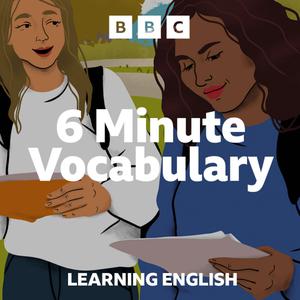 Learning English Vocabulary
Learning English Vocabulary
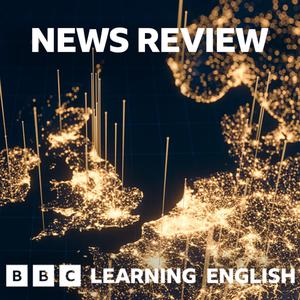 Learning English from the News
Learning English from the News
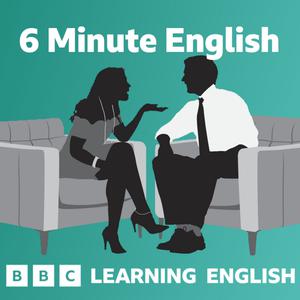 6 Minute English
6 Minute English
 Learning English Conversations
Learning English Conversations
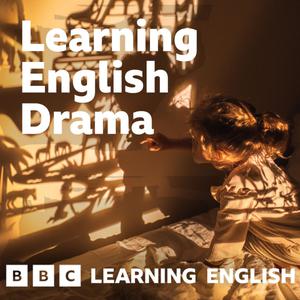 Learning English Stories
Learning English Stories
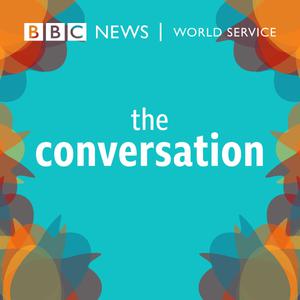 The Conversation
The Conversation